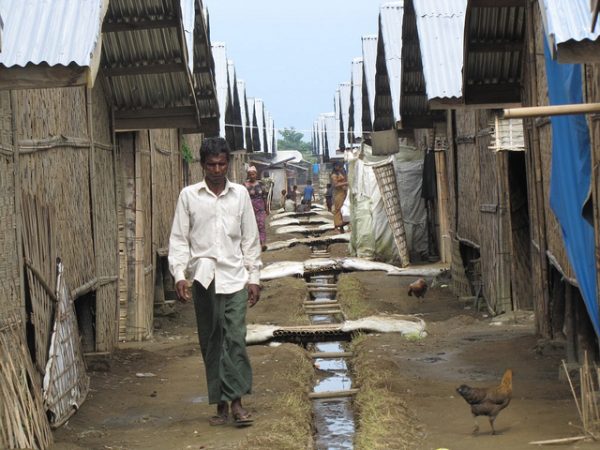
The Rohingya, a Muslim minority group, have been the target of violence for years in Myanmar, also known as Burma. But in recent weeks, international media coverage has surged following a spike in violence that has led to over 120,000 Rohingya fleeing their homes. The increased media attention, however, has also provided a platform for an anti-Rohingya propaganda campaign that argues the Rohingya are “terrorists” and deserve the violence that befalls them. Sociologists have brought new insight into how propaganda enables the acceptance of atrocities and how it can directly impact rates of violence.
Propaganda campaigns often demonize a group by characterizing them as less-than-human. Refugee communities, for example, are often treated with fear and suspicion by members of their host nation. This can also negatively impact individual-level interactions with the mistrusted group, such as higher rates of expressed aggression and contempt. Studies show that when a group is dehumanized, those outside of the group find it easier to exclude them and assume that they are more deserving of problems in their lives.
- Victoria M. Esses, Scott Veenvliet, Gordon Hodson, and Ljiljana Mihic. 2008.”Justice, Morality, and the Dehumanization of Refugees.” Social Justice Research 21(1): 4-25.
- John Hagan and Wenona Rymond-Richmond. 2008. “The Collective Dynamics of Racial Dehumanization and Genocidal Victimization in Darfur.” American Sociological Review 73(6): 875-902.
Scholars have also examined patterns of violence and how perpetrators make decisions through the use of propaganda. Radio propaganda played a key role in the Rwandan genocide; on hills where radio reception was better, the rate of killing was higher than in areas where reception was limited. Groups such as ISIS use social media to motivate and recruit individuals. With the increasing prominence of social media, understanding how these mechanisms enable the acceptance and perpetration of violence is essential. They also indicate that positive social media campaigns could help to counter propaganda.
- Imran Awan. 2017. “Cyber-extremism: Isis and the Power of Social Media.: Society 54(2): 138-149.
- David Yanagizawa-Drott. 2014. “Propaganda and Conflict: Evidence from the Rwandan Genocide.” The Quarterly Journal of Economics 129(4): 1947–1994.

Comments